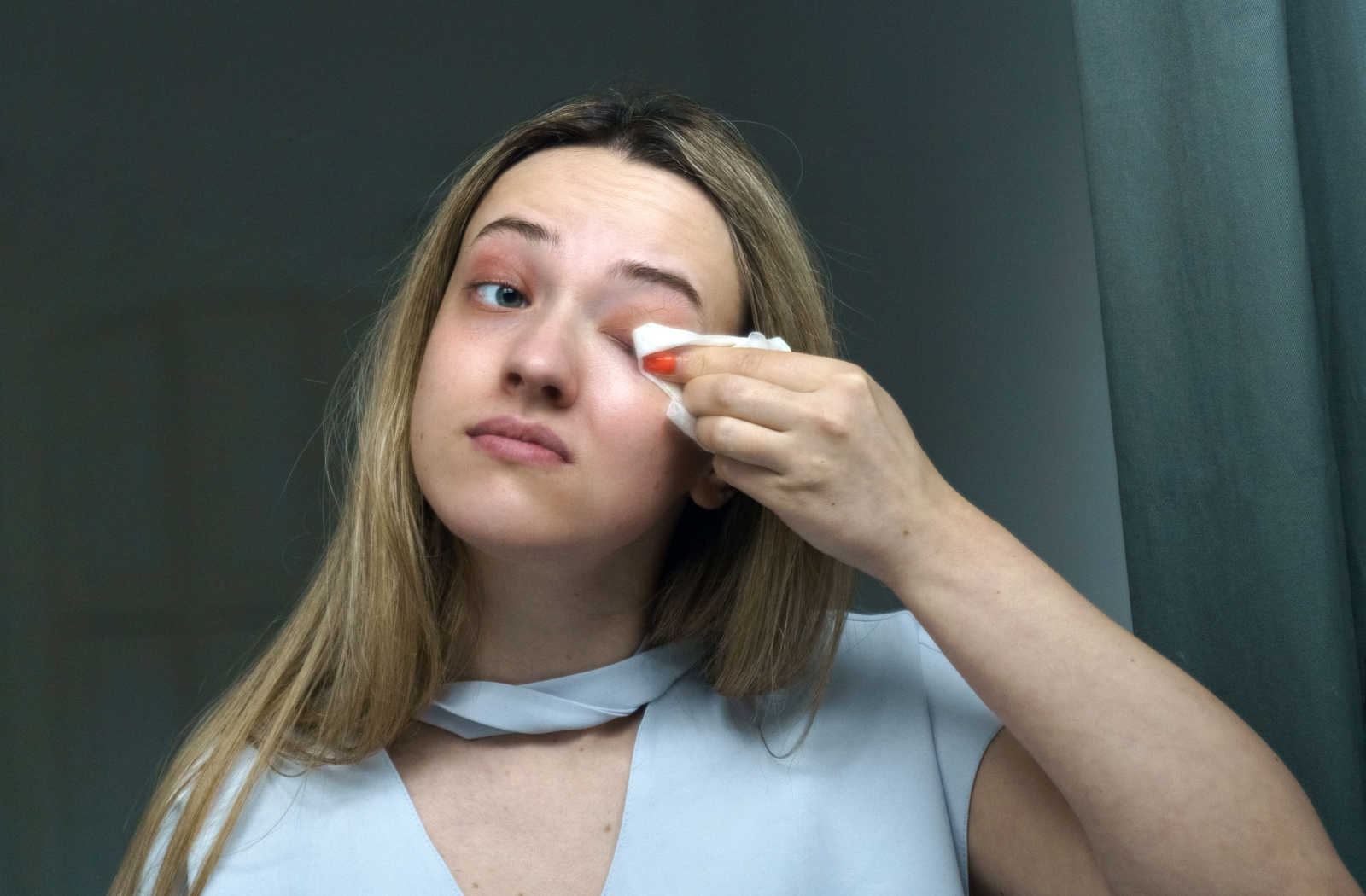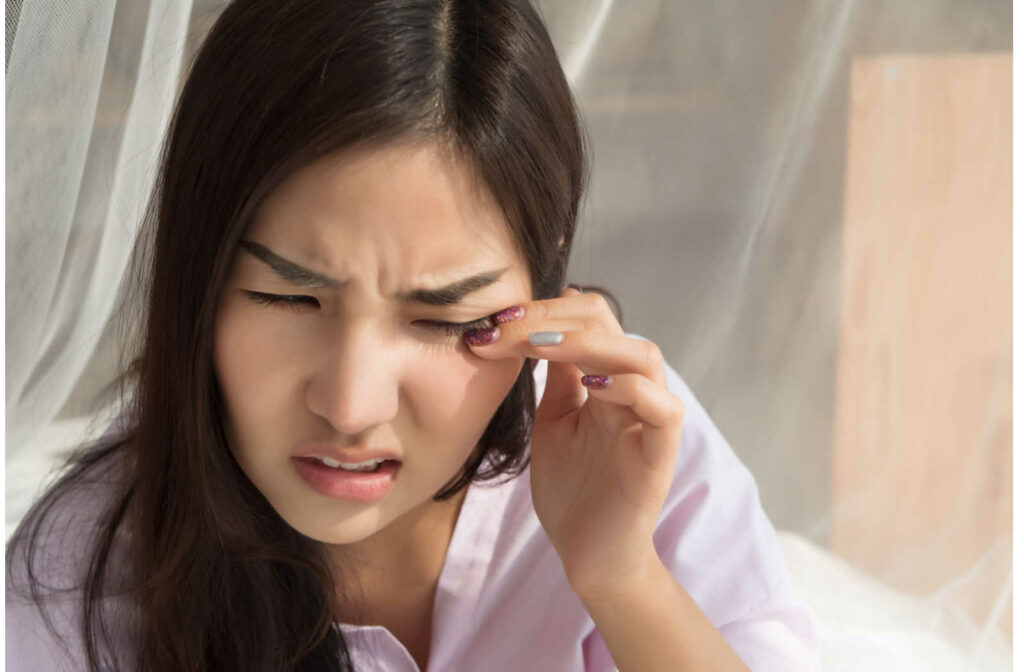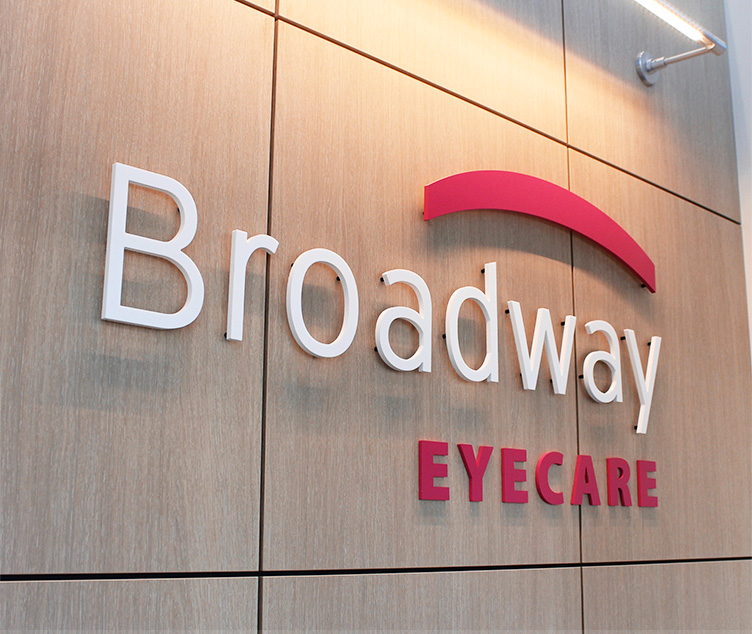If you have dry eyes, you may wonder what causes them. You may be surprised to learn that eyelid hygiene can influence dry eye development. Keeping your eyelids clean can help improve dry eye symptoms, and don’t worry—your optometrist can help.
You can clean your eyelids yourself with eyelid wipes or a clean washcloth and eyelid cleanser, but your eye doctor can also provide in-office treatments to remove debris and reduce inflammation, such as ZEST and BlephEx.
What Is Dry Eye?
Dry eye disease is a chronic condition that can worsen when your tears cannot effectively hydrate your eyes, leading to irritation and discomfort.
Dry eye often occurs due to problems with your tear film: 3 layers (mucus, water, and oil) that help keep your eyes moist and protected.
Some of the common symptoms of dry eye disease include:
- Gritty eyes
- Blurry vision
- Light sensitivity
- Red eyes
- A stinging, burning sensation in your eyes
What Causes Dry Eye?
Dry eye can have many potential causes, from age to medical conditions, and often occurs when something disrupts the balance of your tear film. For example, blepharitis, a condition that can develop due to a buildup of bacteria and debris near your eyelid and lashes, can also disrupt your tear film and cause your eyes to feel dry.
Other causes of dry eyes include:
- Medical conditions
- Meibomian gland dysfunction
- Digital eye strain
- Medication use
- Smoke, wind, or dry air
Eyelid Hygiene & Dry Eyes
Your eyelids protect your eyes from countless irritants, including dirt, sand, dust, and other debris. They help spread tears across your eye and contain the tiny glands that create oil for your tear film. While your eyelids play a vital role in your eye health, they can have issues that lead to dry eyes.
These issues can occur when you fail to keep your eyelids clean. The same dirt and debris your eyelids protect your eyes from can build up on your eyelids and eyelashes.
Without proper eyelid hygiene, your eyelids can become inflamed and debris can spread to your eyes, leading to issues with your tear film. If your meibomian glands become blocked, they may not produce enough oil to prevent your tears from evaporating, which can also lead to dry eye symptoms.

How to Clean Your Eyelids at Home
While poor eyelid hygiene can be a factor in dry eye development, keeping your eyelids clean can help relieve your symptoms.
At home, you can use eyelid wipes or an eyelid cleanser to gently clean your eyes and remove the bacteria that can cause blepharitis, but you can also visit an eye doctor for in-office treatments that can help keep your eyelids clean and relieve symptoms of dry eye.
In-Office Eyelid Treatments for Dry Eyes
We have different treatments available that can help clean your eyelids and reduce the effects of dry eyes. When you visit us, we can recommend a treatment for your needs after assessing your eyes during an eye exam.
The solutions we offer for dry eyes and eyelid hygiene include ZEST and BlephEx treatments.
ZEST
ZEST (Zocular Eyelid System Treatment) can help clean your eyelids to reduce inflammation, irritation, potential infection, and dryness.
During this treatment, we use a specialized cleanser on the upper and lower eyelashes and a small sponge to deep clean and exfoliate your eyelids. We then rinse the cleanser off after gently scrubbing the treatment area.
In addition to helping remove buildup of oil and debris around your eyes, the cleansing solution can help reduce eye inflammation.
BlephEx
BlephEx is another blepharitis treatment that involves using a handheld device with a soft sponge to gently clean your eyelids and remove debris and bacteria. Depending on the severity of your dry eyes, you may require multiple BlephEx sessions to improve your symptoms.
Don’t Settle for Dry, Irritated Eyes
Dry eyes can be uncomfortable to deal with, but they can be managed with help from your eye doctor. We can recommend treatments and strategies to help improve eyelid hygiene and reduce dry eye symptoms based on your eye health and the cause of your dry eyes.
Request an appointment with us to speak with our team about your unique eye care needs.









